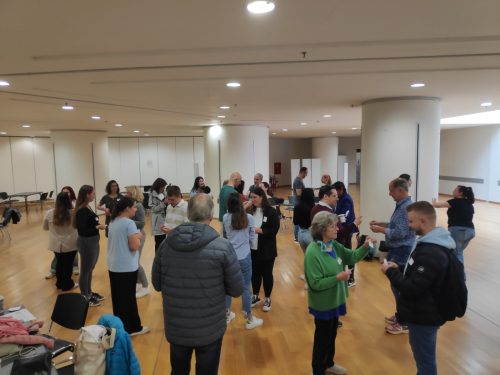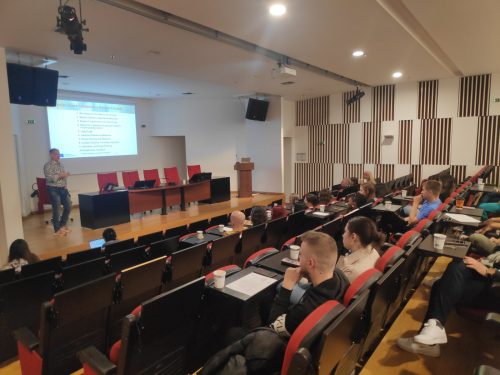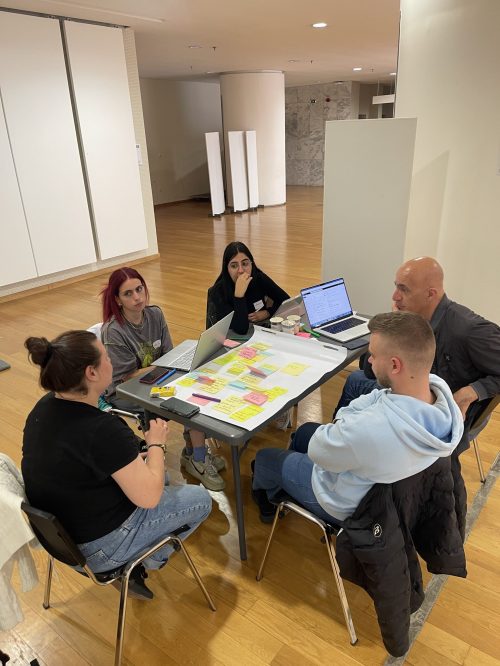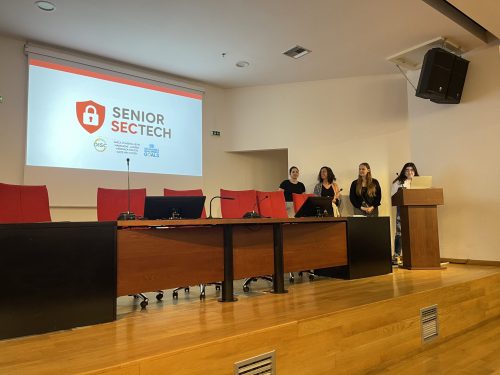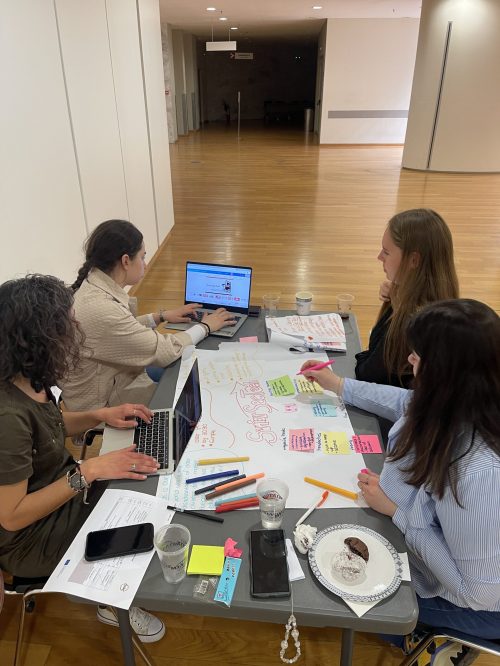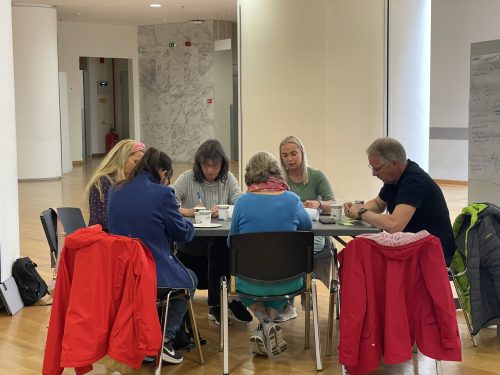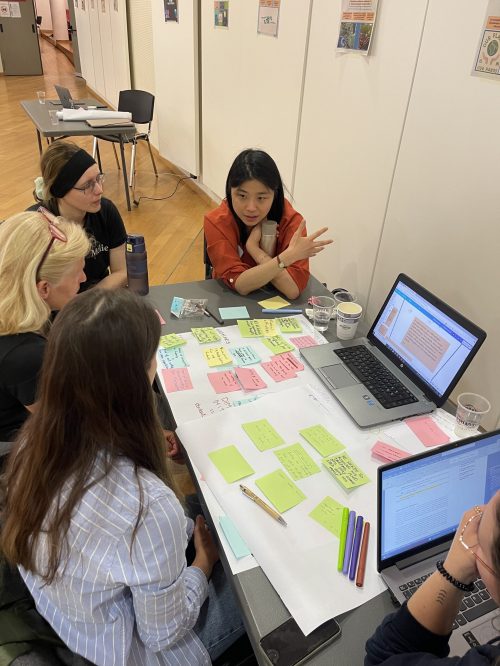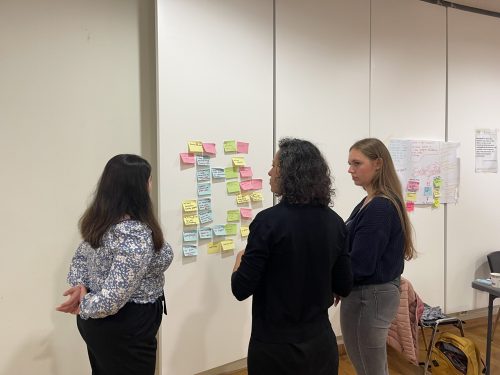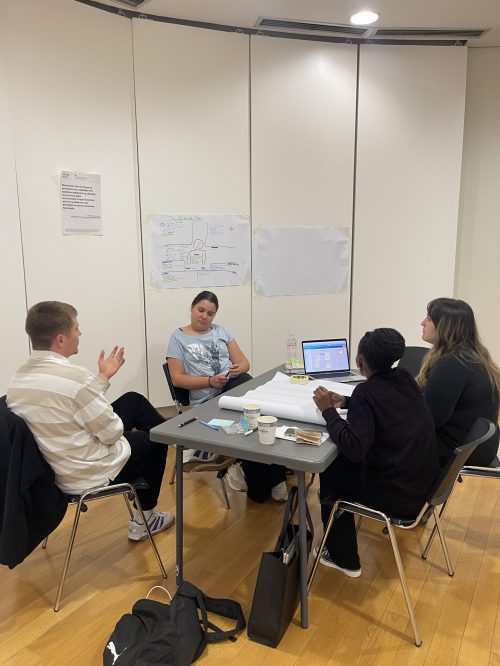Design Based Collaborative Research for Sustainable Development.
Co-Creating Solutions for SDG
14-18.04.2025, Thessaloniki, Greece
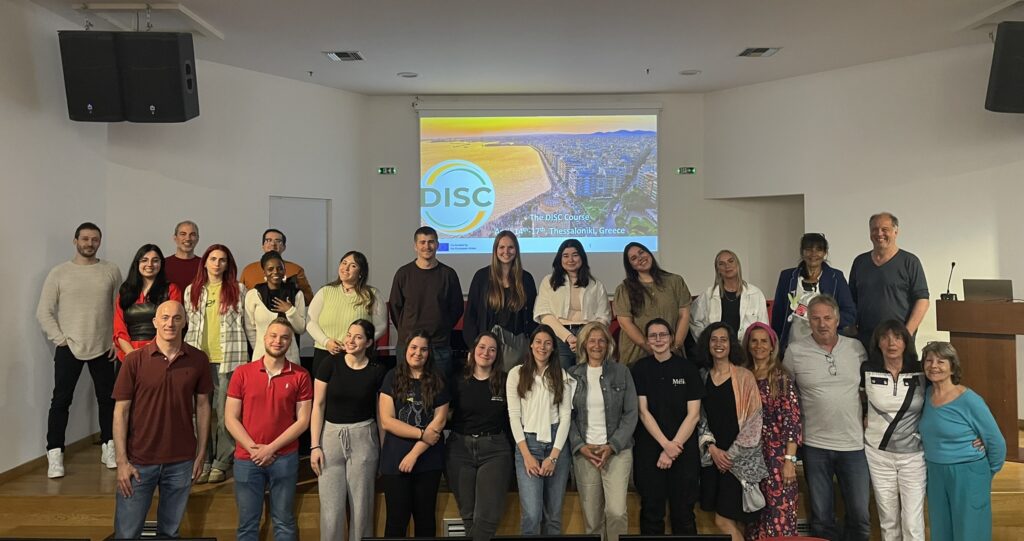
From 14–17 April 2025, over 30 participants from Portugal, Serbia, Italy, Germany, and Greece gathered in Thessaloniki for the “Design Based Collaborative Research for Sustainable Development” course under the DISC project.
The course began with two online sessions, where participants, grouped into international teams, conducted collaborative research on the UN Sustainable Development Goals (SDGs). These sessions allowed students to analyse real-world challenges, collect data, and define key problems—setting the stage for hands-on teamwork in Thessaloniki.
During the in-person workshop, teams turned their research into practical, innovative solutions using design thinking. Five diverse teams tackled SDG 3 (Good Health and Well-being) and SDG 4 (Quality Education):
Team Highlights:
Team Sustain-a-Bite targeted university students transitioning to independent living who often rely heavily on frozen meals and takeaways. The team developed a creative campaign and user-friendly resources to encourage healthier, affordable, and manageable cooking habits.
Another team, The Game Challenger, explored ways to tackle social isolation among teen and university-age gamers. Recognising the tendency of gamers to disconnect from broader social interactions, they designed an innovative online game aimed at bridging the virtual and physical worlds, promoting real-world interactions and friendships among gaming enthusiasts.
Addressing the digital vulnerability of senior citizens, Team SeniorSecTech developed a creative public-awareness campaign to tackle digital fraud. They proposed a novel approach: sending simulated “fake scam” SMS messages to educate seniors, safely alerting them and helping them avoid genuine scams and fraudulent schemes.
Erasmus and exchange students often struggle with integration and local university support when studying abroad. To help bridge this gap, a dedicated team created an innovative one-stop digital platform. The tool supports international students by facilitating better communication with local universities and raising staff awareness about incoming students.
Team KIAR, sought to encourage young children and teenagers to engage with nature and outdoor activities. They designed a fun and interactive AI-companion toy, R2D2, that guides outdoor adventures, fostering a lasting connection to nature through play and exploration.
What’s Next?
These inspiring prototypes showcase the creativity and dedication of our participants. Prototypes developed during the DISC Course will soon be featured on the official DISC website, highlighting each team’s creativity and innovative thinking. We thank all our participants for their passion and commitment. Stay tuned for updates and stories from these outstanding projects!
Stay tuned for more updates from DISC!
